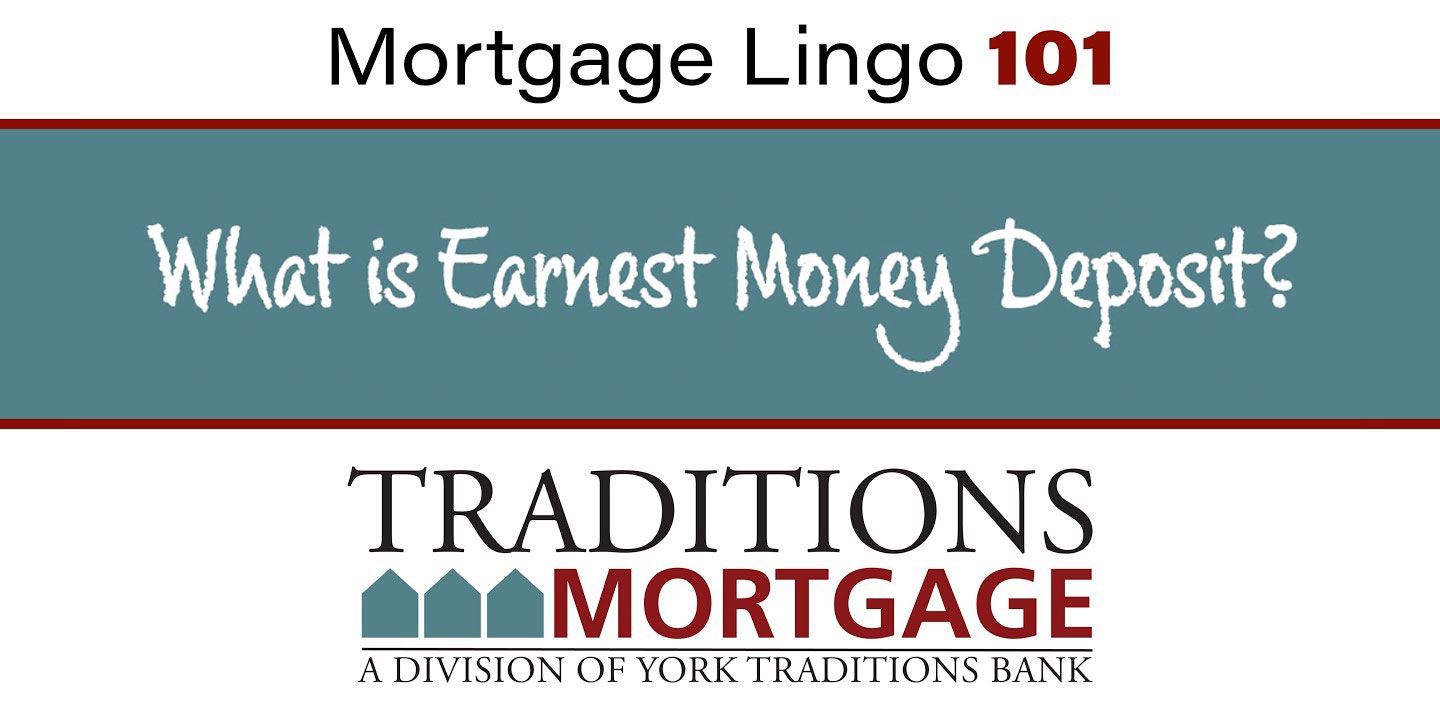We all know that mortgage lingo can be confusing. At Traditions Mortgage, we aim to educate our customers and referral partners on the mortgage process, as well as this confusing mortgage lingo. That’s why we instituted this six-week long video series to remove that confusion around commonly used mortgage terms.
In the first of this video series, we will discuss a commonly used term when purchasing a home: Earnest Money Deposit.
What is Earnest Money Deposit or EMD?
An Earnest Money Deposit, commonly referred to as EMD, is the deposit money made to the seller indicating the buyer’s good faith to purchase the home typically paid at the time the contract is signed. EMD is also referred to as Good Faith Money or an Initial Deposit.
In other words, the seller typically requires a small payment in the form of a check upfront when signing the contract to show them that you’re serious about purchasing the home. This small payment is nonrefundable should you break the contract. It shows the seller that you are serious by having something to lose if you break the contract.
If the lender sees an amount paid on the contract, they will ask you to prove that you paid that earnest money deposit. You could evidence this by providing a copy of the check once it clears your bank account.
For more information, contact a member of our Traditions Mortgage team today!
